•Menu
•Tin đọc nhiều
-
 NSND
Thanh
Nam
và
nghệ
sĩ
Chí
Tâm
ngồi
ghế
nóng
"Chuông
vàng
vọng
cổ"
lần
thứ
19
-
2024
NSND
Thanh
Nam
và
nghệ
sĩ
Chí
Tâm
ngồi
ghế
nóng
"Chuông
vàng
vọng
cổ"
lần
thứ
19
-
2024 -
 Tâm
Sự
Thần
Y
4.0
Tâm
Sự
Thần
Y
4.0 -
 Thông
diệp
của
cải
lương
điện
ảnh
Thông
diệp
của
cải
lương
điện
ảnh -
 Nhiều
người
trẻ
tâm
huyết
với
nghệ
thuật
hát
bội
Nhiều
người
trẻ
tâm
huyết
với
nghệ
thuật
hát
bội -
 “Đêm
huyền
thoại”
quy
tụ
nhiều
ngôi
sao
sân
khấu
cải
lương
“Đêm
huyền
thoại”
quy
tụ
nhiều
ngôi
sao
sân
khấu
cải
lương -
 Thí
sinh
Lê
Hoàng
Nghi
đoạt
giải
Chuông
vàng
vọng
cổ
lần
thứ
19
–
năm
2024
Thí
sinh
Lê
Hoàng
Nghi
đoạt
giải
Chuông
vàng
vọng
cổ
lần
thứ
19
–
năm
2024 - Giữ bản sắc cho cải lương tuồng cổ
-
 CAILUONGVIETNAM.COM
13/04/2004
-
13/04/2025
CAILUONGVIETNAM.COM
13/04/2004
-
13/04/2025
•Tin ngẫu nhiên
-
 TRẦN
MINH
CỦA
MẸ
TRẦN
MINH
CỦA
MẸ -
 NS
Hồng
Tơ
và
NS
Bạch
Long
-
Chuyện
vui
hậu
trường
sân
khấu
NS
Hồng
Tơ
và
NS
Bạch
Long
-
Chuyện
vui
hậu
trường
sân
khấu -
 Nhạc
Bolero
-
thể
loại
dễ
nghe
nhưng
khó
hát
Nhạc
Bolero
-
thể
loại
dễ
nghe
nhưng
khó
hát -
 Vở
cải
lương
Tấm
lòng
của
biển
hỗ
trợ
NSƯT
Hùng
Minh
chữa
bệnh
Vở
cải
lương
Tấm
lòng
của
biển
hỗ
trợ
NSƯT
Hùng
Minh
chữa
bệnh -
 NGHỆ
SĨ
“KHỔNG
LỒ”
TRÊN
SÂN
KHẤU
THỦ
ĐÔ
NGHỆ
SĨ
“KHỔNG
LỒ”
TRÊN
SÂN
KHẤU
THỦ
ĐÔ -
 Sân
khấu
cải
lương
được
mùa
vở
diễn
lịch
sử
Sân
khấu
cải
lương
được
mùa
vở
diễn
lịch
sử -
 Cát
Tường:
Nổi
tiếng
cũng
chỉ
là
hư
danh
Cát
Tường:
Nổi
tiếng
cũng
chỉ
là
hư
danh -
 Say
đắm
“Dấu
chân
kỷ
niệm”
của
Sơn
Tuyền
Say
đắm
“Dấu
chân
kỷ
niệm”
của
Sơn
Tuyền -
 Nghệ
sĩ
Hùng
Cường:
Ba
Vương
trong
một
Nghệ
sĩ
Hùng
Cường:
Ba
Vương
trong
một -
 Soạn
giả
cải
lương
Đồng
Tháp
nhận
giải
thưởng
cấp
nhà
nước
Soạn
giả
cải
lương
Đồng
Tháp
nhận
giải
thưởng
cấp
nhà
nước
•Thống kê truy cập
![]() Đang
truy
cập
:
181
Đang
truy
cập
:
181
•Máy chủ tìm kiếm : 65
•Khách viếng thăm : 116
![]() Hôm
nay
:
54070
Hôm
nay
:
54070
![]() Tháng
hiện
tại
:
751032
Tháng
hiện
tại
:
751032
![]() Tổng
lượt
truy
cập
:
101033561
Tổng
lượt
truy
cập
:
101033561
 »
Tin
Tức
»
English
»
Tin
Tức
»
English

CAILUONGVIETNAM.COM 13/04/2004 - 13/04/2025
Sắp tới đây là kỷ niệm 21 năm ngày thành lập trang web cailuongvietnam.com (13/04/2004 - 13/04/2025) Dây là trang tin tức đầu tiên của cailuongvietnam.com từ năm 2004. Còn đuọc gọi là CLVNCOM1 . Thân mời các dộc giả xem những bằi mới hơn tại trang tin tưc CLVNCOM2 theo link dưới dây https://www.cailuongvietnam.com/newscl
Actress UT BACH LAN – An Artist’s Life is Like a Short-lived Flower
Đăng lúc: Thứ tư - 11/06/2014 10:39 - Đã xem: 6137
Actress UT BACH LAN – An Artist’s Life is Like a Short-lived Flower
CLVNCOM - After learning that the Hoa Binh Theater is going to have a liveshow for NSUT Ut Bach Lan , I decided to pay her a visit. Her small house on Tran Hung Dao Street looks the same – still the lonely hammock where she usually sits to study her lines and the Buddha altar with incense burning. Ms. Ut is a lot skinnier now but her smiles are still friendly and warm. She softly said, “At 65 years of age and after 40 years in the same career, I am very happy to still be able to sing. I am very grateful for the ancestors of Cai Luong and my beloved audiences.”
When
will
your
program
start
rehearsing?
Director
Huu
Luan
will
start
the
rehearsals
on
March
30th
and
31st.
I
am
counting
every
passing
day
looking
forward
to
replaying
my
old
favorite
roles.
Nevertheless,
I
have
to
admit
I
had
conflicting
feelings
of
joy
and
worry
over
the
last
few
days.
I
am
happy
about
the
chance
to
have
my
own
program
at
the
age
of
65,
but
I
am
worried
whether
audiences
will
still
remember
me
and
buy
tickets
to
show
their
support.
How
did
you
put
your
mind
at
ease
then?
I
thought
about
my
mother,
an
85-year-old
woman
who
devoted
her
whole
life
to
her
daughter.
My
mother
always
loves
to
see
me
perform
on
stage.
She
also
wants
to
know
what
kind
of
comments
audiences
have
for
Ut
Bach
Lan.
All
of
that
gives
me
the
confidence
to
hold
a
liveshow
at
this
late
stage
in
my
career
–
the
last
one
to
commemorate
my
life-long
profession.
Please
don’t
be
pessimistic!
Why
is
it
the
last?
New
generations
need
the
experienced
ones
like
you
to
guide
and
teach
them.
That
was
the
good
example
once
set
by
the
former
generations
of
Cai
Luong
actors.
They
were
Ms.
Bay
Phung
Ha,
Mr.
Ba
Van,
Mr.
Nam
Nghia,
teacher
Vien
Chau,
Ms.
Hai
Kim
Cuc,
and
some
other
composers
who
were
really
kind-hearted
such
as
Ha
Trieu,
Hoa
Phuong,
Le
Khanh,
Kien
Giang…
They
passionately
looked
after
and
developed
our
skills
and
abilities.
Today,
I
see
some
young
actors
who
would
say
nice
words
in
front
of
you,
but
they
do
not
respect
you
behind
your
back.
They
think
that
they
are
more
talented
than
you
are,
and
become
self-centered
and
arrogant.
They
do
not
know
that
an
artist’s
fame
is
short-lived,
similar
to
the
ice-plant
flowers,
blooming
early
in
the
morning
and
wilting
fast
in
the
evening!
Perhaps
that
is
the
reason
why
Cai
Luong
was
on
a
decline
over
the
last
few
years.
My
fellow
colleagues
and
I,
aging
but
still
wanting
to
contribute,
are
losing
our
patience
and
interest
when
we
often
have
to
wait
for
these
younger
actors
to
come
back
from
their
shows
before
we
can
rehearse.
They
just
do
not
take
the
rehearsal
seriously
as
we
do!
Do
you
believe
the
Cai
Luong
art
is
on
its
way
to
revival?
Not
really!
That
kind
of
revival
does
not
come
from
the
fruits
of
labor
of
new
and
younger
generations’
actors.
We
can
see
that
the
older
generation
has
brought
new
light
and
hope
to
the
Tran
Hung
Dao
cinema,
but,
sadly,
that
light
is
only
strong
enough
to
shine
over
the
good
old
days.
Which
characters
that
you
portrayed
throughout
your
40-year
career
are
you
going
to
replay
in
this
special
liveshow?
They
are
the
ones
that
made
me
famous
to
audiences,
such
as
Ms.
Hang
in
“Con
Gai
Chi
Hang”,
Mrs.
Lan
in
“Tuyet
Tinh
Ca”,
Miss
The
in
“Nua
Doi
Huong
Phan”,
etc.
Each
of
them
has
had
sentimental
meaning
throughout
my
difficult
and
miserable
life.
Is
that
why
you
cried
so
much
in
those
signature
roles,
because
they
resembled
your
miserable
childhood?
I
became
fatherless
at
the
age
of
6.
My
grandmother’s
family
was
so
poor
that
my
mother
had
to
carry
me
to
Cho
Lon
to
find
work.
My
mother
became
a
hired
hand
for
some
vendors
at
Cho
Lon
market
(now
Binh
Tay
market).
Together
with
other
families
who
left
their
hometowns
to
find
work
in
Cho
Lon,
we
tried
to
form
a
group
to
help
and
look
after
each
other.
That
was
how
my
mother
and
Van
Vi’s
mother
became
close
friends,
very
much
like
sisters.
(Van
Vi
later
became
a
very
famous
musician.)
We
were
both
fatherless,
so
we
loved
and
sympathized
with
each
other
easily.
Every
morning
we
went
around
the
market
to
do
whatever
other
vendors
told
us
to
do.
In
return,
they
paid
us
with
what
they
had
-
fish
or
vegetables.
We
then
brought
them
home
for
our
two
mothers
to
cook.
At
night,
four
of
us
slept
inside
the
market
and
dreamed
of
having
our
own
little
place
some
day.
When
did
you
two
discover
your
abilities
to
play
music
and
sing
Vong
Co
songs?
One
year
later,
Van
Vi
got
smallpox
and
became
blind.
My
two
mothers
cried
so
much
for
his
cruel
fate.
He
became
deeply
pensive.
He
spent
a
lot
of
time
in
the
dark
to
explore
a
guitar
that
someone
had
thrown
away.
Magically,
he
taught
himself
how
to
play
music
skillfully.
At
that
time
I
was
totally
carefree.
While
working
for
the
vendors,
if
I
heard
songs
on
the
radio,
I
would
stop
working
and
then
sing
out
loud.
One
day,
both
of
us
decided
to
make
a
living
by
singing
on
the
streets.
At
first,
the
two
mothers
did
not
approve.
But
they
later
gave
in
after
realizing
our
decision
was
the
best
solution
for
our
desperate
situation
at
the
time.
What
made
you
and
Mr.
Van
Vi
take
up
music
professionally?
When
good
words
spread
that
a
little
girl
named
Ut
at
Bau
Sen
market
sang
very
well,
Ms.
Nam
Can
Tho,
the
then-famous
actress,
came
and
asked
my
mother
to
let
me
sing
for
the
Phap
A
radio
station.
My
first
song
was
“Con
Chim
Hoa
Mi”
(A
Nightingale).
In
1950,
seeing
our
homeless
situation,
an
old
man
at
the
Bau
Sen
market
shared
part
of
his
house
so
that
we
could
build
a
shelter.
I
am
also
thankful
to
actor
Thanh
Cong
for
introducing
me
to
the
owner
of
the
Phap
A
radio
station.
I
signed
a
long-term
contract
to
sing
for
him.
I
was
given
a
stage
name
Bach
Lan
to
compete
with
actress
Bach
Hue
at
the
national
radio
station.
I
asked
my
manager
to
let
me
keep
Ut,
the
name
that
my
parents
gave
me,
to
show
my
deep
gratitude
to
them
for
giving
birth
to
me
and
raising
me.
So
my
stage
name
became
Ut
Bach
Lan.
Was
it
your
simple
yet
deeply
emotional
singing
voice
that
helped
you
quickly
become
well
known
on
the
Cai
Luong
stage
at
that
time?
In
1952,
a
relative
introduced
me
to
the
Kim
Chung
troupe
to
start
training.
Although
they
liked
my
voice,
I
first
had
to
learn
how
to
dance,
to
take
very
small
parts
in
the
plays
before
taking
up
further
steps.
Composer
Vien
Chau
had
purposely
written
some
extra
Vong
Co
verses
for
me
to
sing,
but
a
leading
actress
was
jealous
of
me
because
I
received
more
reward
money
thrown
onto
the
stage
from
audiences;
sometimes
the
amount
reached
$100
VND,
a
big
sum
at
that
time.
As
a
result,
I
was
no
longer
allowed
to
sing,
and
they
sent
me
to
work
at
the
ticket
booth
instead.
One
year
later,
actor
Hoang
Giang
introduced
me
to
Thanh
Minh
troupe
to
replace
actress
Thanh
Huong.
From
then
on,
my
dream
of
becoming
an
actress
came
true,
and
I
was
finally
able
to
make
enough
money
to
support
my
mother.
Was
it
tough
during
your
training
years?
I
am
thankful
for
the
tough
conditions
I
had
to
go
through
because
they
prepared
me
for
the
difficult
roles
later
on.
I
will
never
forget
the
punishments
from
Mr.
Nam
Nghia
(actor
Bao
Quoc’s
father)
who
helped
make
my
performance
perfect,
and
allowed
me
to
receive
much
praise
from
audiences.
How
can
you
tell
the
differences
between
the
role
of
a
leading
actress
and
a
main
character?
They
are
very
different,
but
many
people
have
mistaken
them
to
be
the
same.
As
a
matter
of
fact,
to
be
a
leading
actress,
one
needs
talent,
looks,
and
knowledge.
For
me,
after
the
turning-point
of
joining
Thanh
Minh
troupe,
I
could
not
stand
on
my
own
two
feet
until
5
years
later.
When
you
think
of
all
the
actors
who
were
once
your
former
mentors,
whose
performing
style
do
you
remember
most?
It
is
Mr.
Ba
Van.
He
was
a
preeminent
stage
actor
in
South
Vietnam.
It
was
he
who
helped
me
put
my
pride
aside
to
come
back
to
Thanh
Minh
troupe
and
take
the
supporting
roles
to
get
more
experience.
I
remember
it
was
in
1975
when
I
acted
with
him
on
the
same
stage
with
Sai
Gon
1
troupe.
He
got
huge
raves
from
everyone
for
his
performance
as
Tam
Khoe
in
the
play
named
“Nguoi
Ven
Do”
(Country
Man)
by
composer
Minh
Khoa.
It
was
the
Ai
Tu
Ke
verse
in
which
he
pretended
to
be
insane.
”I
am
Tam
Khoe.
I
agree
to
secede
from
communist
party.”
When
he
portrayed
that
role,
he
skillfully
expressed
his
painful
state
of
mind,
he
pulled
his
hair,
and
his
eyes
were
full
of
tears…
Since
then,
there
has
not
been
any
other
actor
who
can
perform
that
role
as
well
as
Mr.
Ba
Van.
I
know
that
you
were
given
some
affectionate
nicknames
by
journalists
in
Saigon
before
1975
such
as
“The
Sorrowful
Actress
Ut
Bach
Lan”,
“The
Princess
of
Suong
Chieu
Style”,
“Mystical
Queen”
“The
Great
Wall
of
Vong
Co”,
etc.
What
do
you
think
of
those?
Every
actor
must
be
very
happy
when
honored
with
such
nicknames.
Each
of
those
nicknames
has
its
own
unforgettable
origin.
For
example,
when
singing
Suong
Chieu
style,
I
combined
the
techniques
of
simplicity
and
quickly
changing
the
notes
within
the
same
scale.
This
combined
technique
stayed
in
the
listeners’
hearts.
Or
the
nickname
“The
Great
Wall
of
Vong
Co”
was
born
because
I
was
not
picky
in
choosing
the
Vong
Co
songs
–
I
could
sing
them
all,
and,
especially,
I
did
not
ask
any
songwriters
to
rewrite
the
lyrics.
All
that
brought
me
self-confidence
because
the
above
unique
method
of
singing
is
my
own
gifted
technique
which
was
developed
from
my
life
experience.
How
do
you
evaluate
the
young
actors’
styles
of
singing
Vong
Co
songs
nowadays?
They
have
their
unique
styles,
but
some
of
them
do
not
understand
that
the
specific
characteristics
of
Cai
Luong
are
soulful
and
narrative.
When
they
feel
like
it,
they
change
the
verses
by
adding
more
than
100
or
200
words
into
the
songs,
and
then
sing
in
one
long
stretch
without
pausing
to
take
a
breath.
That
completely
ruins
the
Vong
Co
songs.
What
do
you
think
of
the
Tran
Huu
Trang
Award,
organized
by
the
Stage
Association
in
Ho
Chi
Minh
City
over
the
last
6
years?
In
my
opinion,
the
Stage
Association
in
HCM
City
has
successfully
and
professionally
held
the
awards
to
continue
the
tradition
of
the
Thanh
Tam
Award
in
encouraging
actors
of
younger
generations
to
stay
in
this
profession.
However,
in
this
difficult
time,
how
can
we
find
enough
qualified
actors
to
reward
5
to
6
gold
medals
every
year?
In
some
recent
years,
you
have
been
the
judge
in
the
contests
to
select
good
singers
in
Ho
Chi
Minh
City
(Bong
Lua
Vang),
Long
An,
Dong
Thap,
Kien
Giang,
Can
Tho,
Bien
Hoa,
Tay
Ninh,
Binh
Duong…
What
do
you
think
of
the
young
population’s
interest
in
singing
amateur
Cai
Luong
and
Vong
Co?
Not
only
I
but
the
leaders
of
those
cities
where
the
contests
were
held
feel
happy
to
see
that
the
young
generations
do
not
forget
their
roots.
If
Cai
Luong
is
included
in
the
curriculum
at
universities
like
some
other
forms
of
arts,
the
public
will
understand
and
love
Cai
Luong
more.
I
am
aware
that
Hung
Vuong,
a
private
university,
is
the
first
one
to
offer
a
course
of
traditional
music
(beginning
on
March
23rd
with
160
students),
and
lectured
by
Professor
Tran
Van
Khe.
This
is
a
good
sign
for
Cai
Luong
to
be
taught
at
universities.
In
the
past,
you
taught
singing
and
acting
at
Ho
Chi
Minh
College
for
Stage
and
Film.
Why
did
you
stop?
Your
question
brings
back
sad
memories.
Every
day
coming
to
class,
all
I
heard
about
was
dating
and
courting
among
the
students.
They
seemed
to
take
forever
to
learn
a
Vong
Co
song.
I
felt
so
frustrated
that
I
resigned.
Perhaps
the
traditional
art
is
not
taken
seriously
anymore
in
this
day
and
age.
I
learned
that
you
and
the
recording
company
Rang
Dong
just
traveled
to
the
U.S.A.
to
look
for
new
business
opportunities.
What
did
you
get
from
the
trip?
The
living
conditions
in
California
are
not
as
easy
as
many
people
think.
I
met
some
fellow
actors
such
as
Viet
Hung,
Ngoc
Nuoi,
Dung
Thanh
Lam
and
others.
They
are
all
homesick.
They
missed
their
old
career
and
their
glorious
singing
days
back
in
Vietnam.
I
will
forever
remember
the
sad
looks
and
the
audience’s
tears
at
the
gathering
at
A.T.
restaurant
in
California,
which
was
organized
by
the
Long
An
Association.
They
cried
so
much
when
listening
to
my
singing
the
songs
“Lan
and
Diep”
and
“The
Mother
Teaches
her
Child”.
Nguồn tin: CLVNCOM
Những tin mới hơn
- The meaning & history of SaiGon - Ý nghĩa và lịch sử Sài Gòn (29/07/2014)
- Actress Thanh Thanh Hoa – The Gold Medalist of the Prestigious Thanh Tam Award in 1961 (15/08/2014)
- Actress Thanh Thanh Hoa – The Gold Medalist of the Prestigious Thanh Tam Award in 1961 (19/08/2014)
- Trieu Trung Kien (29/08/2014)
- Early days in Le Thuy’s performing career (23/07/2014)
- Actress Bich Hanh’s biography and memories (12/07/2014)
- Actor Viet Hung (28/06/2014)
- Sixty Zitherists perform in HCMC (03/07/2014)
- THE SURVIVAL OF THE TRADITIONAL MUSIC (NHAC CO TRUYEN) (05/07/2014)
- Vọng Cổ : Sáu Câu (Six Phrases) (18/06/2014)
Những tin cũ hơn
- Bach Tuyet, A Precious Gem of Cai luong (06/06/2014)
- HISTORY OF VIETNAMESE MUSIC (03/06/2014)
- Cai luong legend comes to life in photos (29/05/2014)
- Vietnam has full Vietnam has full foundation on sovereignty over Hoang Sa, Truong Sa (27/05/2014)
- Ex-ethnic beauty queen says victory made her miserable (25/05/2014)
- Vietnam provinces pledge support foreign investors after riots (18/05/2014)
- Op-Ed: The greatest Mother’s Day gift (10/05/2014)
- Traditional Vietnamese music festival kicks off in Bac Lieu (23/04/2014)
- Sad life stories of “Đờn ca tài tử” elite stars (01/04/2014)
- Remembering a hick (hai lua) named Sen (26/03/2014)
Mã
an
toàn:
![]()
•CHUYỂN ĐẾN WEBSITE...
•Tin mới nhất
-
 CAILUONGVIETNAM.COM
13/04/2004
-
13/04/2025
CAILUONGVIETNAM.COM
13/04/2004
-
13/04/2025 -
 Thí
sinh
Lê
Hoàng
Nghi
đoạt
giải
Chuông
vàng
vọng
cổ
lần
thứ
19
–
năm
2024
Thí
sinh
Lê
Hoàng
Nghi
đoạt
giải
Chuông
vàng
vọng
cổ
lần
thứ
19
–
năm
2024 - Giữ bản sắc cho cải lương tuồng cổ
-
 “Đêm
huyền
thoại”
quy
tụ
nhiều
ngôi
sao
sân
khấu
cải
lương
“Đêm
huyền
thoại”
quy
tụ
nhiều
ngôi
sao
sân
khấu
cải
lương -
 Tâm
Sự
Thần
Y
4.0
Tâm
Sự
Thần
Y
4.0 -
 Thông
diệp
của
cải
lương
điện
ảnh
Thông
diệp
của
cải
lương
điện
ảnh -
 NSND
Thanh
Nam
và
nghệ
sĩ
Chí
Tâm
ngồi
ghế
nóng
"Chuông
vàng
vọng
cổ"
lần
thứ
19
-
2024
NSND
Thanh
Nam
và
nghệ
sĩ
Chí
Tâm
ngồi
ghế
nóng
"Chuông
vàng
vọng
cổ"
lần
thứ
19
-
2024 -
 Nhiều
người
trẻ
tâm
huyết
với
nghệ
thuật
hát
bội
Nhiều
người
trẻ
tâm
huyết
với
nghệ
thuật
hát
bội -
 Nghệ
sĩ
Bích
Thuận
qua
đời
Nghệ
sĩ
Bích
Thuận
qua
đời -
 Vở
"Sấm
vang
dòng
Như
Nguyệt"
-
dấu
ấn
mới
của
NSƯT
Chí
Linh,
Vân
Hà
Vở
"Sấm
vang
dòng
Như
Nguyệt"
-
dấu
ấn
mới
của
NSƯT
Chí
Linh,
Vân
Hà
•Đăng nhập thành viên
- Những Vở Diễn Hay KIỆT TÁC SÂN KHẤU THẾ GIỚI: LÔI VŨ
- Nghệ Sĩ Tâm Sự Ngọc Huyền 'vẫn bị cấm hát tại Việt Nam'
- Đời Thường Nghệ Sĩ Con dâu trẻ của NSUT Thoại Miêu qua đời chưa đầy 2 năm cưới
- Đời Thường Nghệ Sĩ Nghệ sĩ Tú Sương kết hôn với Việt kiều
- Tâm Tư Thành Viên Người trong giới tự nói gì về nghệ sĩ Mỹ Châu ?
- Trong bầu trời nghệ thuật sân khấu cải lương, nghệ sĩ Thành Được mãi là ngôi sao sáng vĩ đại. Ông đã...
- Tôi cũng biết một soạn giả có tên YÊN BA, nhưng tên thật là PHẠM DIỆP PHƯƠNG, là quân y, KBC 7019
- Bài viết khá đầy đủ về cuộc đời của thầy Văn Hải. Có vài lỗi chính tả không nên có
- thag điên nai ma diên cai gi . toan bac chuoc nsut thanh nam . bat chuoc kieu ngu
- Tôi rất mong chờ để được xem cải lương nhưng thật thất vọng.
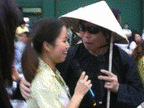
CAILUONGVIETNAM.COM 13/04/2004 - 13/04/2025
Sắp tới đây là kỷ niệm 21 năm ngày thành lập trang web cailuongvietnam.com (13/04/2004 - 13/04/2025) Dây là trang tin tức đầu tiên của cailuongvietnam.com từ năm 2004. Còn đuọc gọi là CLVNCOM1 . Thân mời các dộc giả xem những bằi mới hơn tại trang tin tưc CLVNCOM2 theo link dưới dây https://www.cailuongvietnam.com/newscl

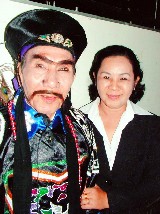

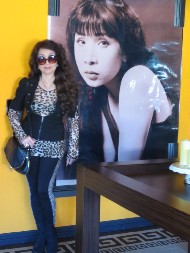






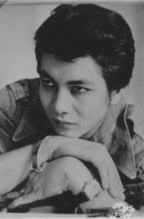
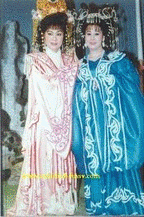












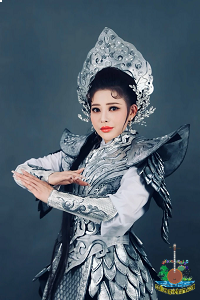

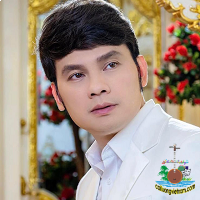
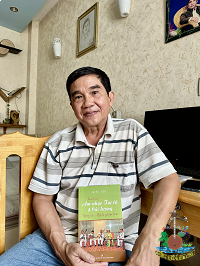










Ý kiến bạn đọc